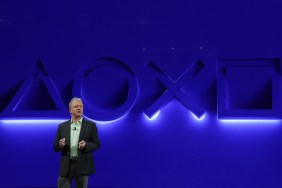It has been depressing to watch the value of professional critics be so roundly undermined in recent years. Yesterday, Xbox Corporate Vice President Mike Ybarra offered his thoughts on Anthem‘s middling reviews: “Amazed at the whining,” he tweeted. “One reviewer … reviewed the game yet in the review cited that he didn’t even know how to do a combo. Embarrassing to review with such a lack of knowledge.”
When asked for his own review of Anthem, Ybarra replied: “I don’t do “reviews” because everyone enjoys different things. I’d suggest “modern reviews” should be watching streamers play a game, doing the demo, listening to what your gaming friends think — and if it seems like something you will enjoy then great.” (Several hours later, after receiving plenty of criticisms, Ybarra added that “you should also read reviews from your favorite sites/journalists as input.)
Ybarra suggesting consumers follow the opinions of streamers isn’t new advice. The backlash against games journalism over the past five years has coincided with increased faith in “influencers” — personalities on Twitch and YouTube who command loyal followings without being tied to a publication. The draw of these influencers is clear; they offer opinions independent of a company, meaning that their audience often views them as more “real.” Viewers perceive influencers as gamers just like them, rather than faceless critics behind a brand like IGN or GameSpot. This is incredible news for publishers, who can lean on influencers to make these friendly recommendations as part of paid sponsorships.
Everyone’s a critic

The problem with using influencers to decide on your purchases is highlighted in their name; their success lies in influencing their audience, rather than informing them. That’s not to say that Twitch streamers and YouTubers can’t be informative, but that as their goal is to be entertaining, it’s not their primary objective. They need to work with the games they’re playing and be as entertaining as possible to generate views and ad revenue. They’re presenters, not critics.
With this in mind, it’s clear to see why corporate heads such as Mike Ybarra prefer it when consumers value streamers over critics, and why they benefit from professional criticism being undermined. As Ybarra has proven in the past, he’s perfectly comfortable with showing off positive reviews of Xbox games such as Forza Horizon 3, but a mediocre reception to a game like Anthem is apparently when streamers’ opinions should be prioritized.
Forza Horizon 3 reviews are in. Looking great. Pick this one up, you will enjoy it. #Xbox pic.twitter.com/ASNG3fF31A
— Mike Ybarra (@Qwik) September 20, 2016
This emphasis on influencers’ opinions over critics’ isn’t valuable for consumers. When a critic publishes a review for an outlet, they are held to that outlet’s ethical standards. An editor will typically oversee the review, ensuring that all the boxes are checked before it makes its way online. This process is to ensure the review is as informative and valuable to the reader as possible, as this not being the case can damage a brand’s public image. See the IGN/Filip Miucin plagiarism scandal last year for evidence of this.
Twitch streamers and YouTubers aren’t beholden to such a process. When they make a mistake, they aren’t held to any authority outside of their audience’s judgment. There is no editorial process to determine their published content. This is also true for how influencers handled sponsored content in comparison with media outlets. When an influencer is approached to provide sponsored content for a game, how they handle this content is dictated by little more than the publisher they’re working with and YouTube/Twitch’s Terms of Service. As such, a friendly-faced influencer can happily guide their audience through an unpaid playthrough of a game, then advertise that their viewers should buy that game in a separate paid video.
The difference between influencers and game journalists

Even removing the element of paid sponsorships, an influencer’s job is so different to that of a critic’s that the two can’t be directly compared. We’ve watched as the top streamers have succeeded by virtue of focusing on a specific game, with that game’s continued success being intrinsic to their own popularity. Imagine how much certain Twitch and YouTube channels would suffer if Fortnite‘s player base was suddenly eradicated? Without the aid of professional critics assessing each game, consumers would be reliant on influencers who benefit from the games they play performing well.
While Ybarra’s comments conflate the two roles, game critics and influencers don’t share the same responsibilities. It’s frustrating to see an industry head stoke the fires of the continued backlash against games journalism, playing into the narrative that influencers’ opinions provide the most value to gamers, a belief that benefits corporations and not consumers. There’s a reason why corporate leaders would want their audience to value influencers over critics, just as there’s a reason why developer bonuses have been tied directly to MetaScores in the past, and why not receiving a review copy of a game before its release date is always troubling news. Publishers inevitably want their games to receive a positive reception before they hit store shelves, and the rise of influencers presents them with an easier way to do so than critics’ scores.
Influencers aren’t inherently untrustworthy, but the way they serve their audience is dramatically different when compared with a critic. One actively wants you to enjoy watching their experience with a game, while the other’s duty is to provide you with an honest assessment of that game. Sites like GameRevolution spend countless hours working on reviews that best serve our audience, and it’s incredibly disappointing to see someone like Mike Ybarra undermine that hard work.







